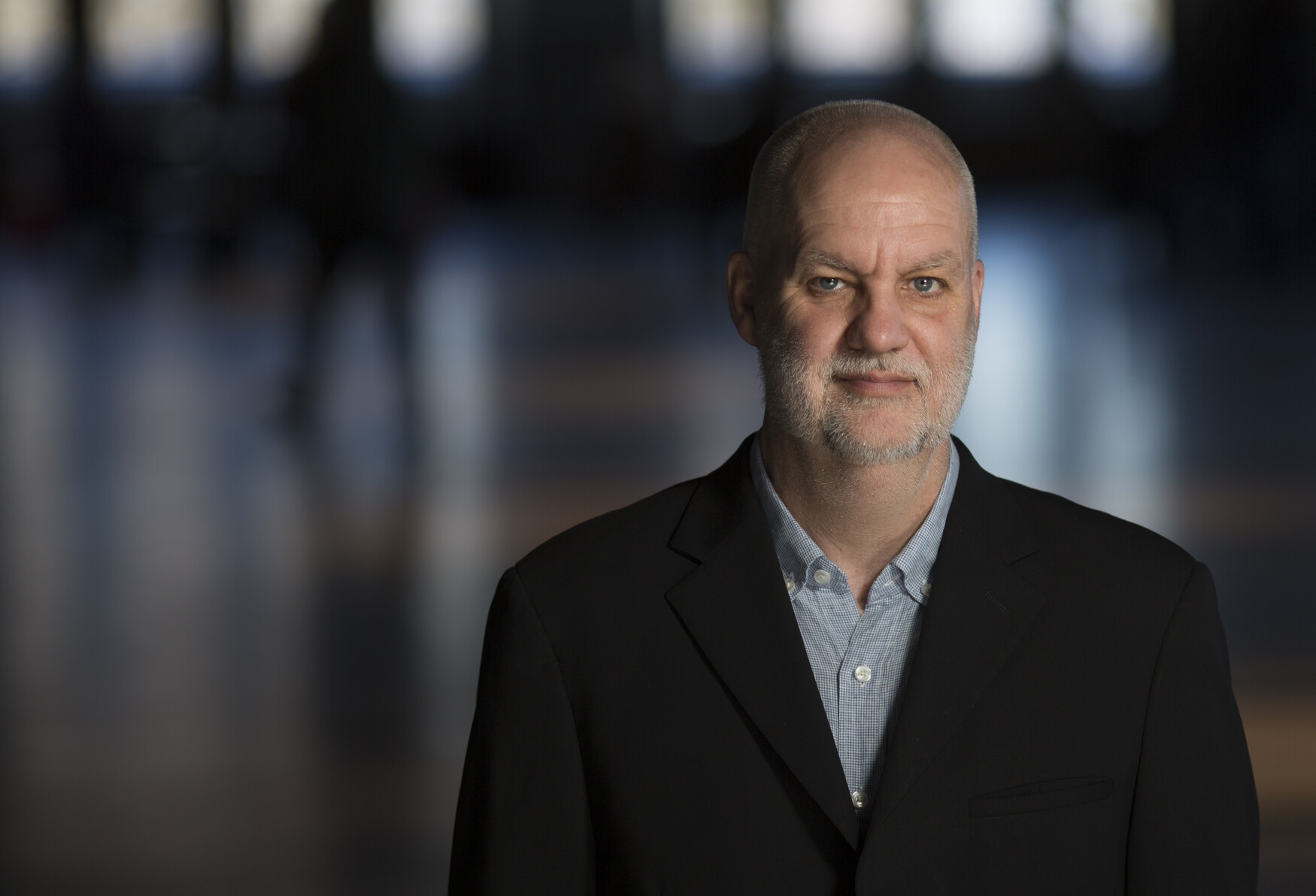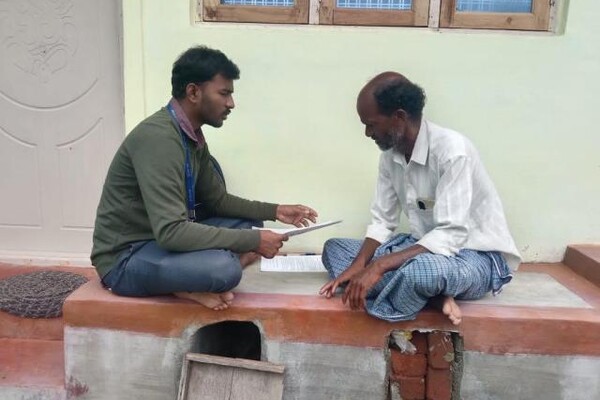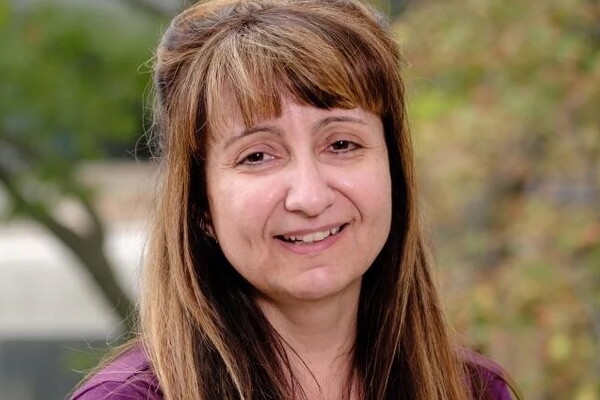Main Second Level Navigation
Breadcrumbs
- Home
- News & Events
- Recent News
- ‘I’m Like a Relentless Water-Torture Test for the Bureaucracy’
‘I’m Like a Relentless Water-Torture Test for the Bureaucracy’

Health columnist André Picard recognized with U of T honorary PhD
André Picard has made a career out of making sense of our health system. In 30 years covering health care for The Globe and Mail, the North Bay native has waded through an ocean of obscure reports, endless hearings, and hairsplitting scholarship to produce interesting, engaging and thoughtful columns on how to improve Canadian health care.

It would seem a thankless job, writing on a subject as dry and complex as health care delivery – and taking on the sacred cow of the Canadian health system, with its proud legacy of universal care. But in Picard’s view, the system is endlessly fascinating, and his interest is infectious. His words have educated the public, elevated the debate and influenced government policy on important topics like AIDS, the safety of Canada’s blood supply, and nursing shortages.
On June 6, the University of Toronto awarded Picard an honorary Doctor of Laws degree to recognize his contributions to health care and his role in educating citizens who are aware, informed, critically intelligent and committed to the welfare of humanity. (View his acceptance speech here.)
“He asks tough questions and pulls no punches,” wrote U of T’s Dean of Medicine, Professor Trevor Young, in a letter of support for his nomination. “Whether he is examining the role of health professionals or the politicians charged with funding the system amid competing demands, his reporting offers fair comment – even when he is taking a challenging stance.”
Picard’s dry wit was on full display recently as he explained to writer Heidi Singer how an accounting major who wanted to be a music lawyer became a health writer instead – and how he makes the system so interesting to readers.
Why do you write about health policy? Aren’t there easier ways to get clicks in the digital journalism era?
I stumbled into policy because I liked the intersection of health and politics. I wish other journalists would do it. I think we write way too much about the industrial side of medicine and not enough about the policy side. The whole machinery is there to promote medical discovery and drugs -- you can cure cancer every second day if you put enough spin in your stories.
My point of view is that administration and bureaucracy actually matters as much to people as the medicine because you don’t get one without the other. People use bureaucracy as a dirty word. I don’t think it is. Doctors often badmouth the bureaucracy, but do they want to run the system? I don’t think so.
What sparked your interest in journalism and health?
I stumbled into that too. I don’t have a health or science background. I studied accounting at the University of Ottawa. I was a big music fan and started doing record reviews for my school newspaper – Led Zeppelin, Elvis Costello, The Clash. I was a summer student at The Globe and Mail in the mid-1980s when AIDS was just entering the mainstream. On campus papers AIDS was a big issue – a political issue around the persecution of gay men, so when I got to the Globe I started covering a lot of AIDS protests. The medical reporter at the time wasn’t really interested in the issue. The way we covered health care at the time was that stuff was published in medical journals and you read the experts and wrote it up. The reporter at the time said ‘Why would you listen to patients? What do they know?’
AIDS is the arc of my whole career. It changed health journalism profoundly. It changed the health system, the drug companies, and social issues. It had an enormous impact on policy. I was very lucky that the Globe was not that hierarchical, and as the story grew, they kept me on it. That wended is way into my doing stuff on tainted blood, the big story of my career. [More than 1,200 Canadians contracted AIDS from blood infected with HIV in the 1980s.] I literally covered that story for years, so it has left its mark. The whole drug regulatory regime was overhauled.
What would you change in health care?
For the mainstream, the emphasis should be on getting primary care right. The problem with our system is that it was created in the 1950s and is frozen in time. It hasn’t grown up to deal with diseases like diabetes. It has to become a chronic care delivery system, which starts with really good primary care.
Do you have a favorite column?
No. I write them and move on. No one column has much influence. I’m like a relentless water torture test for the bureaucracy and politicians. I just poke away at stuff. I think change comes over time instead of instantly. You can’t fix big things quickly.
You’re no stranger to U of T. What do you think of the place?
The benefit of U of T is that it’s a microcosm of the health system. Everybody is there – doctors, nurses, pharmacists, social workers, rehab therapists, health lawyers, systems experts, hospital leaders. So there are very dynamic conversations there. When you have a top-tier university you’re going to attract the brightest of the brightest. I come across U of T grads every day because they’re in the upper echelons of power – they’ve been stimulated and have a good education.
But medical schools have to move more quickly to train people. We talk a lot about interdisciplinarity. We want health care delivered by teams and yet we still train people in isolation. I think doctors should be trained with nurses, pharmacists and nutritionists. We have to teach people together if we’re going to expect them to work together.
I talk to first-year medical students at U of T every year. They’re really excited about changing the system. Then they get into the system and get beaten down. The system consumes them. Institutions like U of T can do more to force the system to change, and allow for more innovation and dissent. The [health care] culture is pretty oppressive – it prevents a lot of change that people know is necessary.
What do you like best about being a journalist?
I have the great privilege of people letting me into their lives at the most intimate times, and I’m always amazed at people’s resilience and strength. I’m not a very outgoing person – I was always very shy, and I like being on the periphery. So I’m always shocked at how much people will share with me. [My success] is as simple as listening to them. It’s shocking how often in society we don’t actually listen to people.
For the full schedule of #UofTGrad17 convocation ceremonies, visit http://www.convocation.utoronto.ca/events.
News


